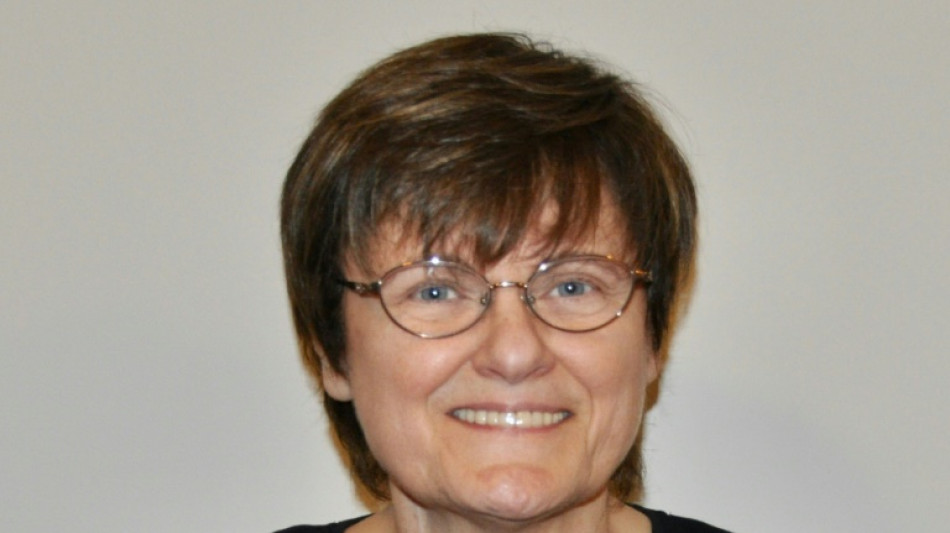
-
 From the Andes to Darfur: Colombians lured to Sudan's killing fields
From the Andes to Darfur: Colombians lured to Sudan's killing fields
-
Eagles win division as Commanders clash descends into brawl

-
 US again seizes oil tanker off coast of Venezuela
US again seizes oil tanker off coast of Venezuela
-
New Zealand 35-0, lead by 190, after racing through West Indies tail

-
 West Indies 420 all out to trail New Zealand by 155
West Indies 420 all out to trail New Zealand by 155
-
Arteta tells leaders Arsenal to 'learn' while winning

-
 Honour to match idol Ronaldo's Real Madrid calendar year goal record: Mbappe
Honour to match idol Ronaldo's Real Madrid calendar year goal record: Mbappe
-
Dupont helps Toulouse bounce back in Top 14 after turbulent week

-
 Mbappe matches Ronaldo record as Real Madrid beat Sevilla
Mbappe matches Ronaldo record as Real Madrid beat Sevilla
-
Gyokeres ends drought to gift Arsenal top spot for Christmas

-
 Arsenal stay top despite Man City win, Liverpool beat nine-man Spurs
Arsenal stay top despite Man City win, Liverpool beat nine-man Spurs
-
US intercepts oil tanker off coast of Venezuela

-
 PSG cruise past fifth-tier Fontenay in French Cup
PSG cruise past fifth-tier Fontenay in French Cup
-
Isak injury leaves Slot counting cost of Liverpool win at Spurs

-
 Juve beat Roma to close in on Serie A leaders Inter
Juve beat Roma to close in on Serie A leaders Inter
-
US intercepts oil tanker off coast of Venezuela: US media

-
 Haaland sends Man City top, Liverpool beat nine-man Spurs
Haaland sends Man City top, Liverpool beat nine-man Spurs
-
Epstein victims, lawmakers criticize partial release and redactions
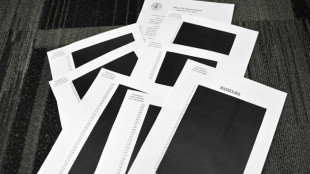
-
 Leverkusen beat Leipzig to move third in Bundesliga
Leverkusen beat Leipzig to move third in Bundesliga
-
Lakers guard Smart fined $35,000 for swearing at refs

-
 Liverpool sink nine-man Spurs but Isak limps off after rare goal
Liverpool sink nine-man Spurs but Isak limps off after rare goal
-
Guardiola urges Man City to 'improve' after dispatching West Ham

-
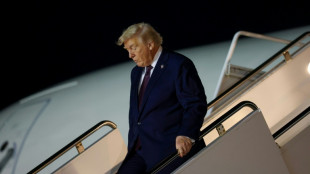 Syria monitor says US strikes killed at least five IS members
Syria monitor says US strikes killed at least five IS members
-
Australia stops in silence for Bondi Beach shooting victims

-
 Olympic champion Joseph helps Perpignan to first Top 14 win despite red card
Olympic champion Joseph helps Perpignan to first Top 14 win despite red card
-
Zelensky says US mooted direct Ukraine-Russia talks on ending war

-
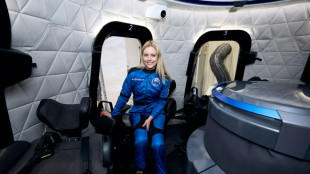 Wheelchair user flies into space, a first
Wheelchair user flies into space, a first
-
Brazil's Lula, Argentina's Milei clash over Venezuela at Mercosur summit

-
 Haaland sends Man City top, Chelsea fightback frustrates Newcastle
Haaland sends Man City top, Chelsea fightback frustrates Newcastle
-
Thailand on top at SEA Games clouded by border conflict

-
 Chelsea chaos not a distraction for Maresca
Chelsea chaos not a distraction for Maresca
-
Brazil's Lula asks EU to show 'courage' and sign Mercosur trade deal

-
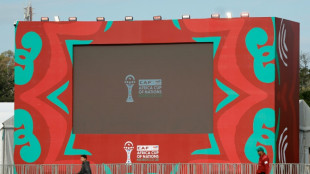 Africa Cup of Nations to be held every four years after 2028 edition
Africa Cup of Nations to be held every four years after 2028 edition
-
Zelensky says US mooted direct Ukraine-Russia talks on ending war in Miami

-
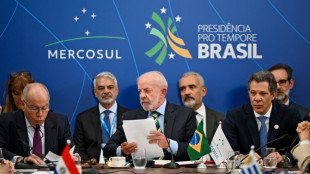 Armed conflict in Venezuela would be 'humanitarian catastrophe': Lula
Armed conflict in Venezuela would be 'humanitarian catastrophe': Lula
-
Chelsea fightback in Newcastle draw eases pressure on Maresca

-
 FIFA Best XI 'a joke' rages Flick over Raphinha snub
FIFA Best XI 'a joke' rages Flick over Raphinha snub
-
Swiss Von Allmen pips Odermatt to Val Gardena downhill
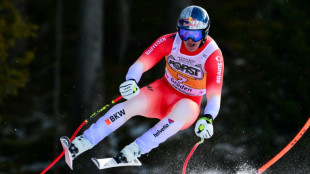
-
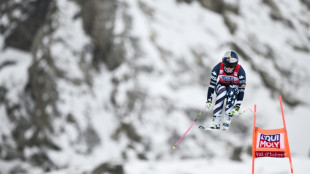 Vonn claims third podium of the season at Val d'Isere
Vonn claims third podium of the season at Val d'Isere
-
India drops Shubman Gill from T20 World Cup squad

-
 Tens of thousands attend funeral of killed Bangladesh student leader
Tens of thousands attend funeral of killed Bangladesh student leader
-
England 'flat' as Crawley admits Australia a better side

-
 Australia four wickets from Ashes glory as England cling on
Australia four wickets from Ashes glory as England cling on
-
Beetles block mining of Europe's biggest rare earths deposit

-
 French culture boss accused of mass drinks spiking to humiliate women
French culture boss accused of mass drinks spiking to humiliate women
-
Burning effigy, bamboo crafts at once-a-decade Hong Kong festival

-
 Joshua knocks out Paul to win Netflix boxing bout
Joshua knocks out Paul to win Netflix boxing bout
-
Dogged Hodge ton sees West Indies save follow-on against New Zealand

-
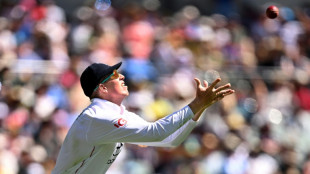 England dig in as they chase a record 435 to keep Ashes alive
England dig in as they chase a record 435 to keep Ashes alive
-
Wembanyama 26-point bench cameo takes Spurs to Hawks win


Katalin Kariko, scientific maverick who paved way for mRNA vaccines
Hungarian-born scientist Katalin Kariko's obsession with researching a substance called mRNA to fight disease once cost her a faculty position at a prestigious US university, which dismissed the idea as a dead end.
Now, her pioneering work -- which paved the way for the Pfizer/BioNTech and Moderna Covid-19 vaccines -- has won her the Nobel Prize in Medicine.
Kariko, 68, spent much of the 1990s writing grant applications to fund her research into "messenger ribonucleic acid" -- genetic molecules that tell cells what proteins to make, essential to keeping our bodies alive and healthy.
She believed mRNA held the key to treating diseases where having more of the right kind of protein can help -- like repairing the brain after a stroke.
But the University of Pennsylvania, where Kariko was on track for a professorship, decided to pull the plug after the grant rejections piled up.
"I was up for promotion, and then they just demoted me and expected that I would walk out the door," she told AFP in an interview from her home in Philadelphia in December 2020.
Kariko didn't yet have a green card and needed a job to renew her visa. She also knew she wouldn't be able to put her daughter through college without the hefty staff discount.
She decided to persist as a lower-rung researcher, scraping by on a meagre salary.
It was a low point in her life and career, but "I just thought...you know, the (lab) bench is here, I just have to do better experiments," she said.
The determination runs in the family -- her daughter Susan Francia did go to UPenn, where she earned a master's degree, and won gold medals with the US Olympic rowing team in 2008 and 2012.
- Twin breakthroughs -
By the late 1980s, much of the scientific community was focused on using DNA to deliver gene therapy, but Kariko believed that mRNA was also promising since most diseases are not hereditary and don't need solutions that permanently alter our genetics.
First though, she had to overcome a major problem: in animal experiments, synthetic mRNA was causing a massive inflammatory response as the immune system sensed an invader and rushed to fight it.
Kariko, together with her main collaborator and co-winner Drew Weissman, discovered that one of the four building blocks of the synthetic mRNA was at fault -- and they could overcome the problem by swapping it out with a modified version.
They published a paper on the breakthrough in 2005. Then, in 2015, they found a new way to deliver mRNA into mice, using a fatty coating called "lipid nanoparticles" that prevent the mRNA from degrading, and help place it inside the right part of cells.
Both these innovations were key to the Covid-19 vaccines developed by Pfizer and its German partner BioNTech, where Kariko is now a senior vice president, as well as the shots produced by Moderna.
Both work by giving human cells the instructions to make a surface protein of the coronavirus, which simulates an infection and trains the immune system for when it encounters the real virus.
- New treatments -
Though she does not want to make too much of it, as a foreign-born woman in a male-dominated field, Kariko occasionally felt underestimated -- saying people would approach after lectures and ask "Who's your supervisor?"
"They were always thinking, 'That woman with the accent, there must be somebody behind her who is smarter or something,'" she said.
Yet the Nobel is just the latest accolade for Kariko, who has won the Breakthrough Prize, the L'Oreal-UNESCO prize for women in science awards, among many others.
It is a far cry from the time when her late mother would call every year after prize announcements to ask why she hadn't been chosen.
"I never in my life get (federal) grants, I am nobody, not even faculty," she would reply with a laugh.
To which her mother would reply: "But you work so hard!"
P.Costa--AMWN



